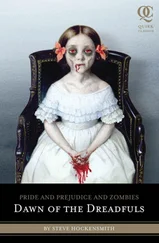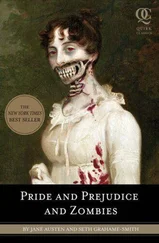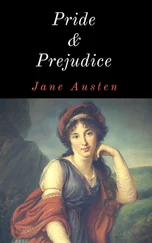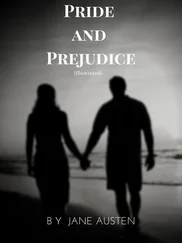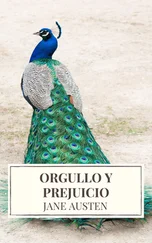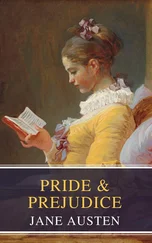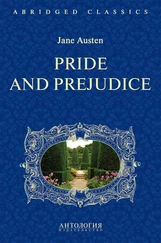in that quarter as Elizabeth herself could be, and unconsciously
closed his book. He was directly invited to join their party, but
he declined it, observing that he could imagine but two motives
for their choosing to walk up and down the room together, with
either of which motives his joining them would interfere. “What
could he mean? She was dying to know what could be his
meaning?”—and asked Elizabeth whether she could at all understand
him?
“Not at all,” was her answer; “but depend upon it, he means to be
severe on us, and our surest way of disappointing him will be to
ask nothing about it.”
Miss Bingley, however, was incapable of disappointing Mr. Darcy
in anything, and persevered therefore in requiring an explanation
of his two motives.
“I have not the smallest objection to explaining them,” said he,
as soon as she allowed him to speak. “You either choose this
method of passing the evening because you are in each other’s
confidence, and have secret affairs to discuss, or because you
are conscious that your figures appear to the greatest advantage
in walking; if the first, I would be completely in your way, and
if the second, I can admire you much better as I sit by the
fire.”
“Oh! shocking!” cried Miss Bingley. “I never heard anything so
abominable. How shall we punish him for such a speech?”
“Nothing so easy, if you have but the inclination,” said
Elizabeth. “We can all plague and punish one another. Tease
him—laugh at him. Intimate as you are, you must know how it is to
be done.”
“But upon my honour, I do _not_. I do assure you that my intimacy
has not yet taught me _that_. Tease calmness of manner and
presence of mind! No, no; I feel he may defy us there. And as to
laughter, we will not expose ourselves, if you please, by
attempting to laugh without a subject. Mr. Darcy may hug
himself.”
“Mr. Darcy is not to be laughed at!” cried Elizabeth. “That is an
uncommon advantage, and uncommon I hope it will continue, for it
would be a great loss to _me_ to have many such acquaintances. I
dearly love a laugh.”
“Miss Bingley,” said he, “has given me more credit than can be.
The wisest and the best of men—nay, the wisest and best of their
actions—may be rendered ridiculous by a person whose first object
in life is a joke.”
“Certainly,” replied Elizabeth—“there are such people, but I hope
I am not one of _them_. I hope I never ridicule what is wise and
good. Follies and nonsense, whims and inconsistencies, _do_
divert me, I own, and I laugh at them whenever I can. But these,
I suppose, are precisely what you are without.”
“Perhaps that is not possible for anyone. But it has been the
study of my life to avoid those weaknesses which often expose a
strong understanding to ridicule.”
“Such as vanity and pride.”
“Yes, vanity is a weakness indeed. But pride—where there is a
real superiority of mind, pride will be always under good
regulation.”
Elizabeth turned away to hide a smile.
“Your examination of Mr. Darcy is over, I presume,” said Miss
Bingley; “and pray what is the result?”
“I am perfectly convinced by it that Mr. Darcy has no defect. He
owns it himself without disguise.”
“No,” said Darcy, “I have made no such pretension. I have faults
enough, but they are not, I hope, of understanding. My temper I
dare not vouch for. It is, I believe, too little
yielding—certainly too little for the convenience of the world. I
cannot forget the follies and vices of others so soon as I ought,
nor their offenses against myself. My feelings are not puffed
about with every attempt to move them. My temper would perhaps be
called resentful. My good opinion once lost, is lost forever.”
“_That_ is a failing indeed!” cried Elizabeth. “Implacable
resentment _is_ a shade in a character. But you have chosen your
fault well. I really cannot _laugh_ at it. You are safe from me.”
“There is, I believe, in every disposition a tendency to some
particular evil—a natural defect, which not even the best
education can overcome.”
“And _your_ defect is to hate everybody.”
“And yours,” he replied with a smile, “is willfully to
misunderstand them.”
“Do let us have a little music,” cried Miss Bingley, tired of a
conversation in which she had no share. “Louisa, you will not
mind my waking Mr. Hurst?”
Her sister had not the smallest objection, and the pianoforte was
opened; and Darcy, after a few moments’ recollection, was not
sorry for it. He began to feel the danger of paying Elizabeth too
much attention.
“I hope, my dear,” said Mr. Bennet to his wife, as they were at
breakfast the next morning, “that you have ordered a good dinner
to-day, because I have reason to expect an addition to our family
party.”
“Who do you mean, my dear? I know of nobody that is coming, I am
sure, unless Charlotte Lucas should happen to call in—and I hope
_my_ dinners are good enough for her. I do not believe she often
sees such at home.”
“The person of whom I speak is a gentleman, and a stranger.”
Mrs. Bennet’s eyes sparkled. “A gentleman and a stranger! It is
Mr. Bingley, I am sure! Well, I am sure I shall be extremely glad
to see Mr. Bingley. But—good Lord! how unlucky! There is not a
bit of fish to be got to-day. Lydia, my love, ring the bell—I
must speak to Hill this moment.”
“It is _not_ Mr. Bingley,” said her husband; “it is a person whom
I never saw in the whole course of my life.”
This roused a general astonishment; and he had the pleasure of
being eagerly questioned by his wife and his five daughters at
once.
After amusing himself some time with their curiosity, he thus
explained:
“About a month ago I received this letter; and about a fortnight
ago I answered it, for I thought it a case of some delicacy, and
requiring early attention. It is from my cousin, Mr. Collins,
who, when I am dead, may turn you all out of this house as soon
as he pleases.”
“Oh! my dear,” cried his wife, “I cannot bear to hear that
mentioned. Pray do not talk of that odious man. I do think it is
the hardest thing in the world, that your estate should be
entailed away from your own children; and I am sure, if I had
been you, I should have tried long ago to do something or other
about it.”
Jane and Elizabeth tried to explain to her the nature of an
entail. They had often attempted to do it before, but it was a
subject on which Mrs. Bennet was beyond the reach of reason, and
she continued to rail bitterly against the cruelty of settling an
estate away from a family of five daughters, in favour of a man
whom nobody cared anything about.
“It certainly is a most iniquitous affair,” said Mr. Bennet, “and
nothing can clear Mr. Collins from the guilt of inheriting
Longbourn. But if you will listen to his letter, you may perhaps
be a little softened by his manner of expressing himself.”
“No, that I am sure I shall not; and I think it is very
impertinent of him to write to you at all, and very hypocritical.
I hate such false friends. Why could he not keep on quarreling
with you, as his father did before him?”
“Why, indeed; he does seem to have had some filial scruples on
Читать дальше


